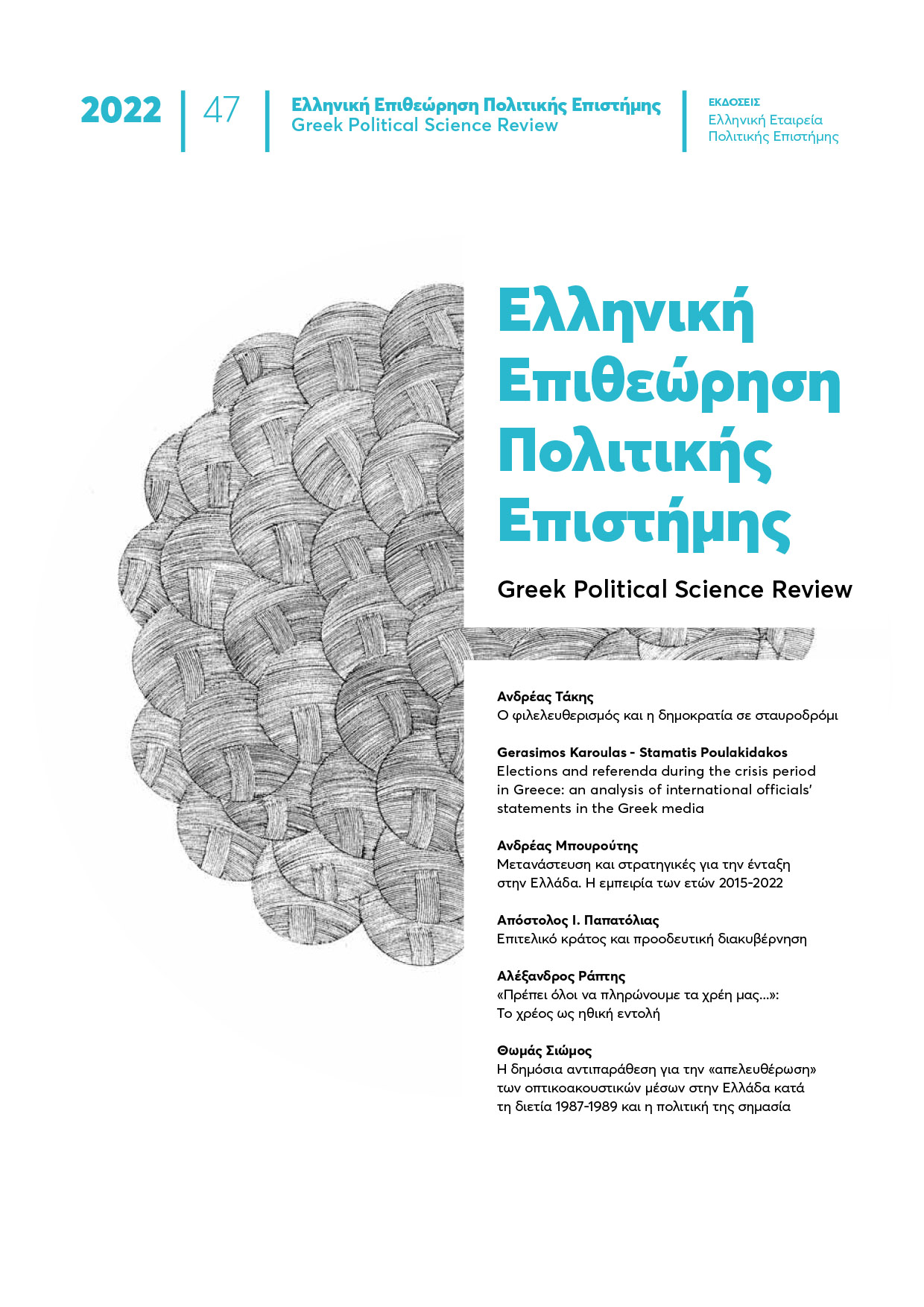Liberalism and Democracy at the Crossroads
Abstract
Neoliberal interpretation of modern democracy that predominates today perceives all questioning of the latter’s liberal components or of the necessary relationship between political and economic freedom as .populism. and promotion of .unfree democracy., that is a total denial of liberal democracy itself. However, according to liberals, there is no necessary link between liberal and democratic ideology. On the contrary, they may differ symmetrically from each other, especially in the justification of coercion: in some cases, democratic ideology may justify a tyrannical majority, just as a liberal ideology may justify a .enlightened. despotism. In reality, however, there is a fundamental asymmetry between them. For democratic ideology, civil liberties are an intrinsic limit of majority decisions, because they are constitutive of citizenship and a condition of each citizen’s distinctiveness. For liberalism, however, since it has abandoned natural law, even negative freedom is a functional component of the spontaneous organic path to general prosperity and, therefore, expendable for the sake of the latter.
Article Details
- How to Cite
-
Takis, A. (2022). Liberalism and Democracy at the Crossroads. Greek Political Science Review, (47), 5–31. Retrieved from https://ejournals.epublishing.ekt.gr/index.php/hpsa/article/view/31851
- Section
- Articles

This work is licensed under a Creative Commons Attribution-NonCommercial-ShareAlike 4.0 International License.
Authors who publish with this journal agree to the following terms:
Authors retain copyright and grant the journal right of first publication with the work simultaneously licensed under a Creative Commons Attribution licence that allows others to share the work with an acknowledgement of the work's authorship and initial publication in this journal.
Authors are able to enter into separate, additional contractual arrangements for the non-exclusive distribution of the journal's published version of the work (e.g. post it to an institutional repository or publish it in a book), with an acknowledgement of its initial publication in this journal.
Authors are permitted and encouraged to post their work online (preferably in institutional repositories or on their website) prior to and during the submission process, as it can lead to productive exchanges, as well as earlier and greater citation of published work (See The Effect of Open Access).



